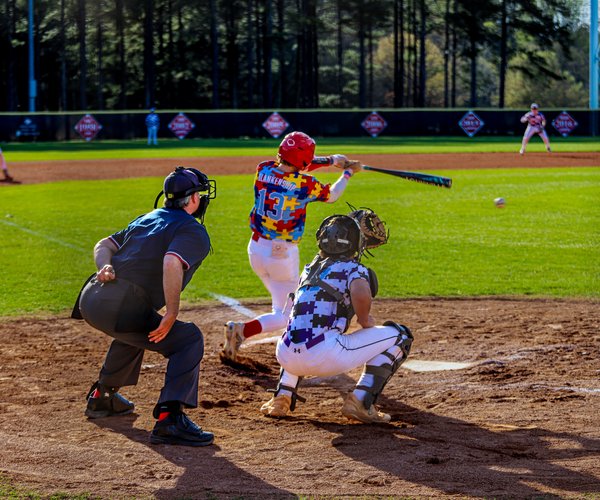If you’ve ever seen the film "Friday Night Lights" then you know just how much high school football can mean to a town. You should also know how much it means to a person who is a talented football player and wants to get paid (hi, Boobie Miles).
When Eastside head football coach Rick Hurst, Newton head football coach Terrance Banks and Alcovy head football coach Kirk Hoffman convened last week to speak to fans at the Lion’s Club college, recruiting became a strong topic of discussion.
It started with a question from a fan in attendance of how many college prospects coach Banks had on his team.
“This college thing is a beast of its own and I really don’t like it because you kind of have to bring some kids back to Earth,” Banks said before going on to mention a few of his college prospects.
“I hate it. I love to put the kids in school, but from the time football season is over until February, it’s crazy,” Hurst told the crowd.
All three coaches took the podium one-by-one and agreed that over the years recruiting has become an ugly facet of high school football. It affects the mindset of players as well as the relationships between parents and coaches. These days every player wants to be a five-star recruit on maxpreps.com and every parent wants their child to play football for a college in the Big 10, Pac-12, Big 12, ACC and/or the SEC.
All three coaches pride themselves on getting kids signed to college, but they want the kids to realize that everybody can’t play for UGA. Banks believes getting players into college is one of the things that makes you a good coach, it’s something he is extremely proud of.
“Recruiting now is not an art. It’s ugly. He (Banks) said it best, it’s a beast,” Hoffman said.
Through decades of coaching high school football, Hoffman has seen the recruiting game go from sending out highlight tapes to getting players to pay to go to collegiate camps.
“It’s become expensive. It’s become difficult for student-athletes. It’s become difficult for the parents,” Hoffman said.
There are even recruiting services now, which get families to pay for their services to help get their child recruited.
“These companies are thriving on these kids and they’re going after their parents to make money,” Hurst said. “The kids read their stuff and they hear that they’re four-star, five-star or three-star. It starts [weighing] on their mind. Like coach Banks said sometimes you have to bring ‘em down to Earth a little bit.”
“I’m not worried about those stars. They don’t mean a thing to me. All I want you to [worry about] is what you do for Eastside. We’ll worry about what you do four years from now later.”
Usually if the schools aren’t coming to see the kids in person, they’re not as interested, so they send letters which in this day and age means absolutely nothing.
“The name of the game now is to throw out a thousand letters. [They’ll] mail a 100,000 letters just because you know what [they] put in your hand? [Their] logo,” Hoffman said.
Hoffman said that after players get a mass amount of letters, once recruiters actually see the player sometimes they say the player doesn’t have the grades or the test scores, but what it really boils down to is size.
Parents are going to go to bat for their child and try to get them into the best schools, but even if your son is a stud at quarterback, if he’s under five-foot-ten the odds are strongly against him.
Hoffman and Hurst shared war stories of recruiting with the crowd. Hurst gave the example of one of his former players, James Johnson, who was a standout six-foot-three lineman with a 3.3 GPA being recruited heavily by SEC schools.
Hurst said that when the schools came in to look at Johnson, a recruiter from Georgia Tech told Hurst, “Coach if I take him back, I will lose my job.”
Hurst said that the recruiter couldn’t take him because he wasn’t 6’5. Hurst told the recruiter that he was missing out on one of the best students and one of the best kids. The recruiter told Hurst, “I know that. It pains me that I’m going to lose him, but if I take him back to my head coach I’m going to lose my job. Because we don’t take 6’3 offensive lineman at Georgia Tech.”






